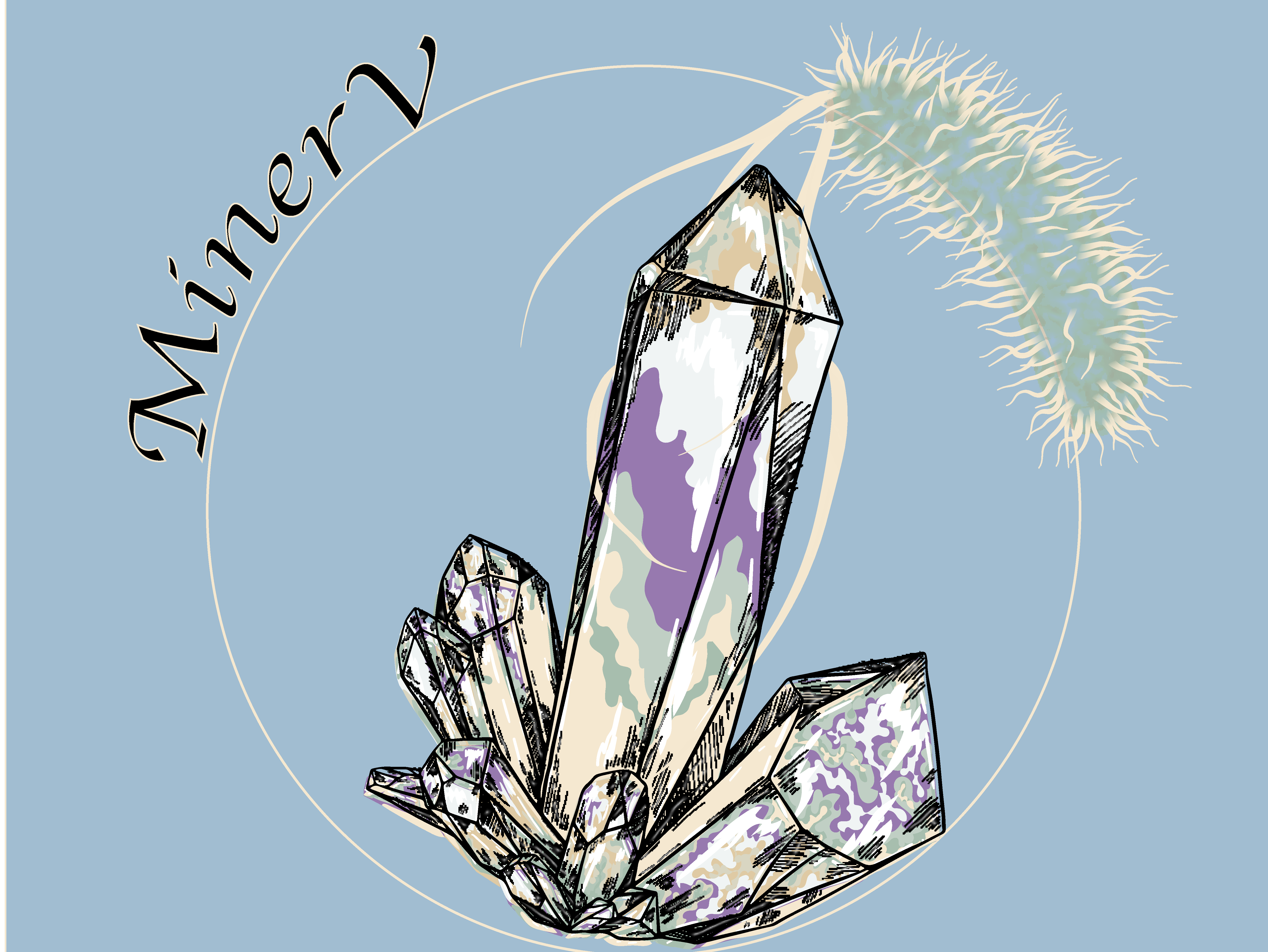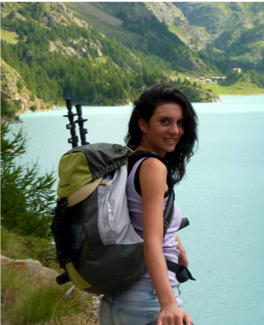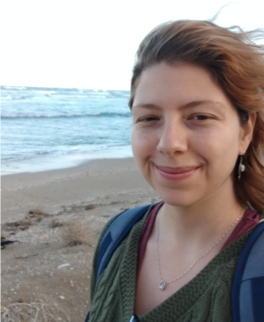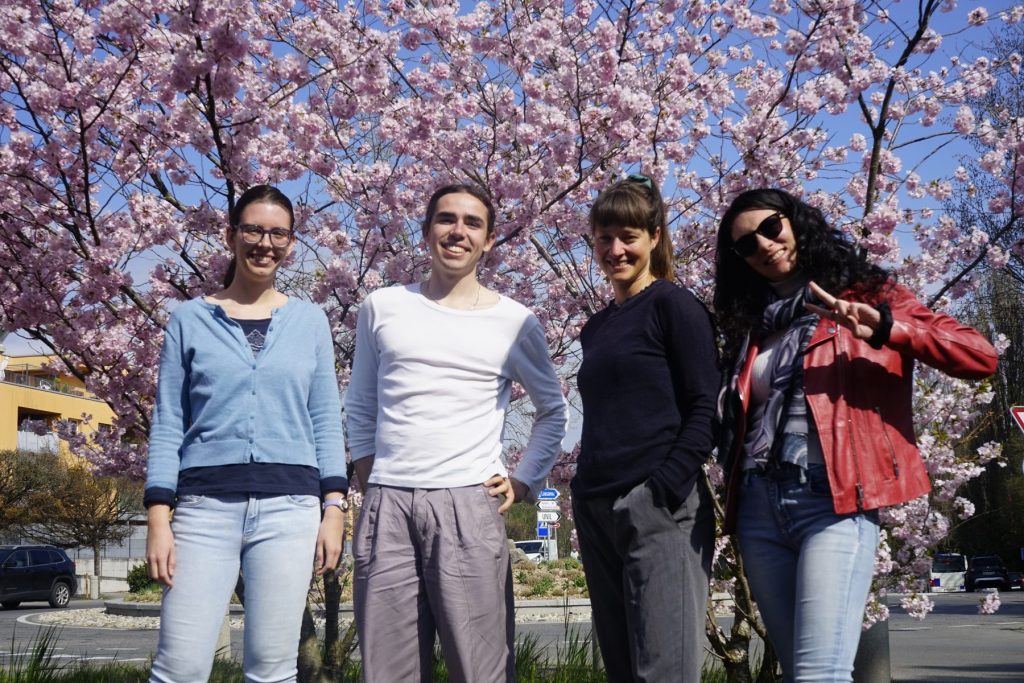
I am a biogeochemist using interdisciplinary approaches (with methods borrowed from biology, geology and chemistry) to solve complex environmental questions related to biogeochemical cycles. Before becoming an Assistant Professor at the Institute of Earth Surface Dynamics I completed a postdoc at the University Pierre et Marie Curie in Paris followed by a postdoc at the ETH Zurich. I obtained my Masters’ degree and a PhD from the Max Planck Institute for Marine Microbiology (Bremen, Germany). My research interests focus on “cryptic” biogeochemical processes that are easily overlooked by traditional analyses involving the quantification of reaction intermediates or end products over time. I believe that steady-state concentrations of certain redox species may arise from the balance between ongoing oxidation and reduction reactions, and that their rapid turnover plays a central role in the environment by feeding active and diverse microbial communities.
PostDocs
I am an environmental engineer specialized in remediation techniques. During my PhD at Politecnico di Milano, I focused on the modeling of fluid mechanics and geochemical processes in subsurface systems and uncertainty quantification. During my post-doc at The University of Sydney and now at UNIL, I got passionate about microbially mediated processes. I use microfluidics experiments and modeling to decipher the impact of micro-scale biogeochemical dynamics on macroscopic ecosystem phenomena and water remediation techniques. Find out more about me and my research on my website.
PhD students
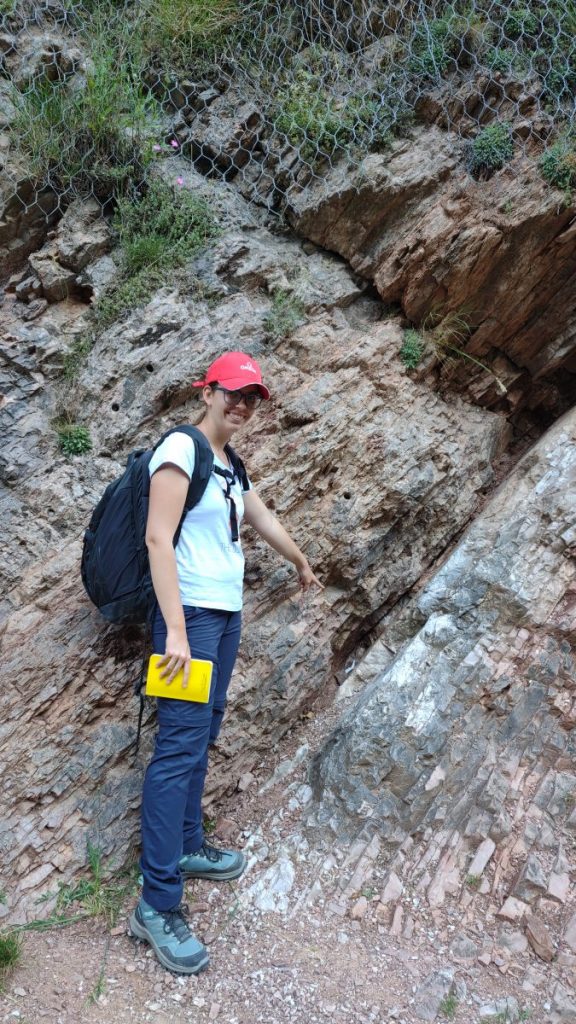
Kinga Santha
I am a geomicrobiologist studying the interplay between microbiology and pyrite formation. I completed my Master’s degree in Marine Microbiology at the University of Bremen and Max Planck Institute
of Marine Microbiology (Germany). I aim to solve scientific questions using a broad set of interdisciplinary tools such as classical microbiology, isotope geochemistry and microbial -omics. In my free time, I enjoy reading fantasy books and biking.

Philip Werner
I am a PhD student in the field of geochemistry with a specialized focus on the sulfur (S) cycle in terrestrial environments.
I earned my Master’s degree at the University of Tübingen, where my thesis centered on the mineralogy and chemistry of iron (Fe) precipitates in Rio Tinto (Spain) an acidic mine drainage area. This unique environment is of significant interest not only for its environmental implications but also for its relevance to astrogeology. The conditions found here resemble those on other planetary bodies, making it an ideal analog for studying extraterrestrial geology.
A significant aspect of my PhD research delves into the relationship between Fe-S-mineral precipitation, microbial activity and the effect of diagenesis on mineral alteration. Understanding this relationship is crucial, as it helps in uncovering how microorganisms contribute to mineral formation and how these processes can preserve biosignatures—evidence of past life—in these unique environments. Through my work, I aim to contribute to the broader understanding of biogeochemical cycles and their implications for environmental science and astrobiology.
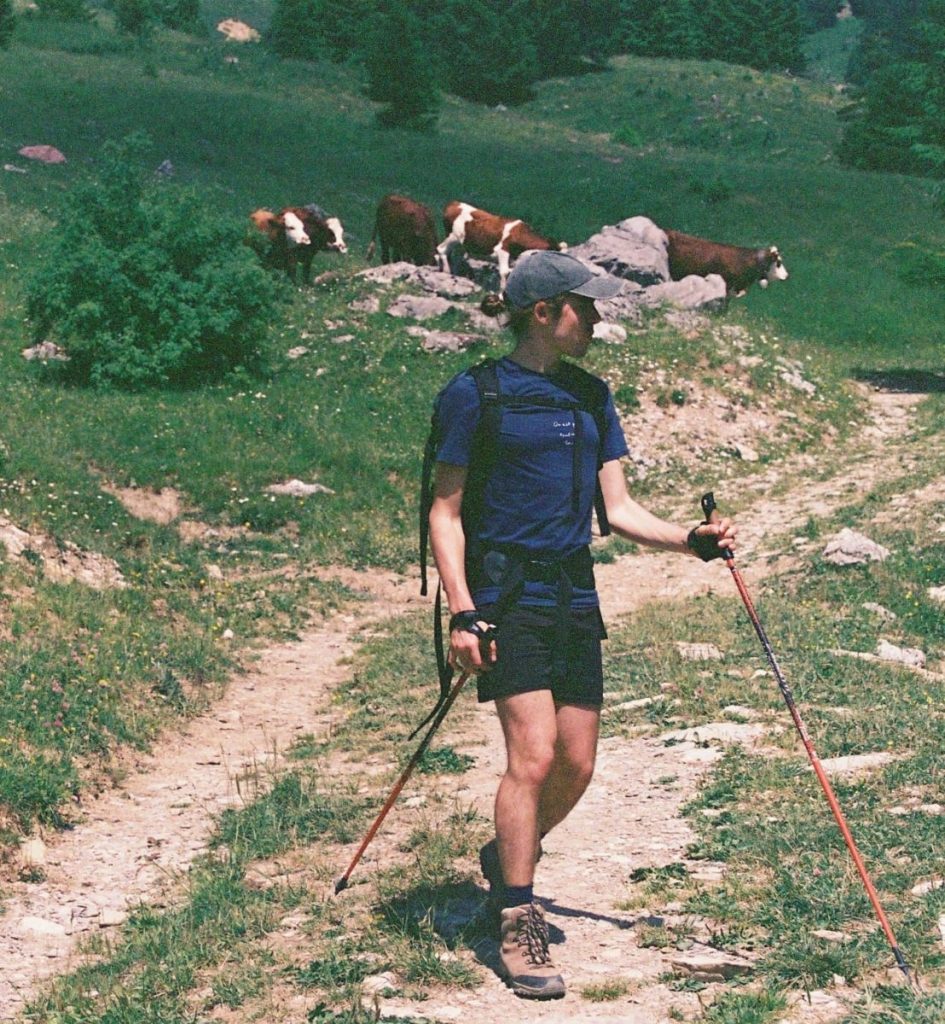
Mateo Vaucouleur
Growing up in the Alps, I always dreamt of working on this amazing ecosystem and led me to study Ecology and Evolution at École Normale Supérieure in Paris. During my studies, an internship focusing on pathogenic fungi of tropical trees developed my interest in interactions between plants, fungi and microbes.
After completing my studies, I returned to the mountains to begin a PhD focused on alpine lichens and mosses. I am investigating how these complex communities — where fungi, photosynthetic organisms, and microbes interact — contribute to nitrogen cycling. In particular, I focus on their influence on the fluxes of nitrous oxide, a potent greenhouse gas commonly known as laughing gas.
Alumni
Alice Bosco Santos (former post-doc)
I am a geobiologist focused on redox evolution in a range of spatio-temporal scales. My research focuses on feedbacks between the biosphere and physical Earth, including ocean and atmosphere evolution. I completed a project investigating the impacts of eutrophication on methane dynamics in Swiss Lakes.
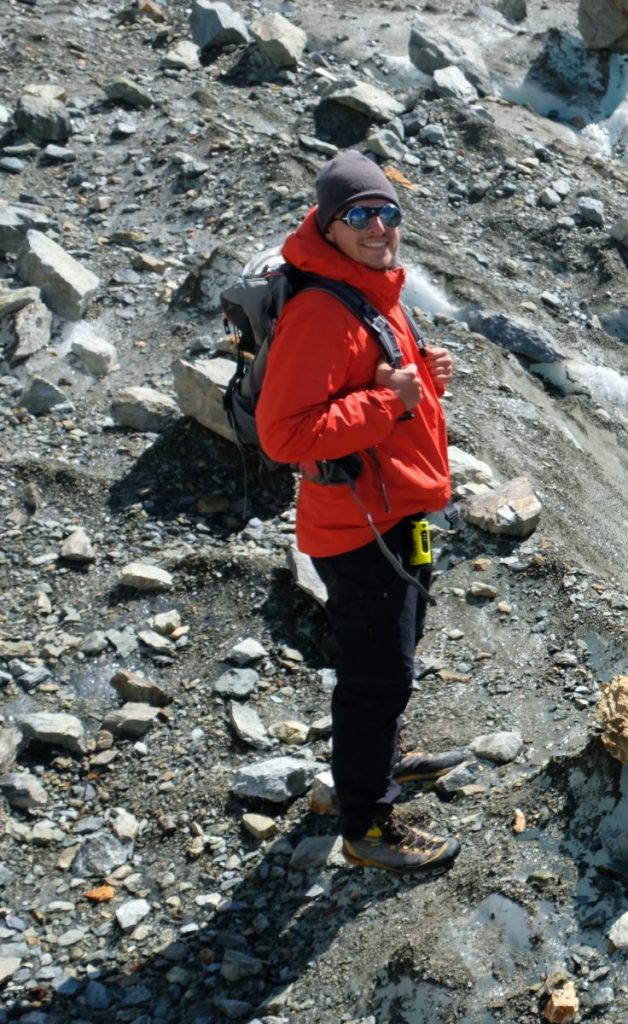
Frédéric Lardet (former MSc student)
Passionate about understanding the ecological, geomorphological and hydrological processes occurring following glacier retreat, I did a BSc in Physical Geography at the University of Lausanne. To expand my knowledge, in particular in moutain regions ecology I pursued with a MSc in Environmental Science in the same university. During my masters thesis, I collected soil samples along a high elevation glacier foreland located in Western Switzerland, with the aim to investigate the microbial diversity developing following glacier retreat. Thanks to the parallel analysis of local soil geochemistry, seasonal dependent parameters and topography, we could define to what extent environmental factors contribute to changes in microbial community composition. In a context of accelerating ice melt, uncovering vast spaces favorable for plant colonisation, these results help us to understand the mechanisms behind the development of new ecosystems in a warming climate.

Laura Cottet-moine (former MSc student)
I did a research internship at the Institute of Earth Surface Dynamics at Unil linked with a master in environmental chemistry from the university of Toulon. My internship subject concerned the anaerobic oxidation of methane by iron in Swiss lakes. I learned new biogeochemical and analytical techniques, like iron speciation and DNA extraction from sediments.
